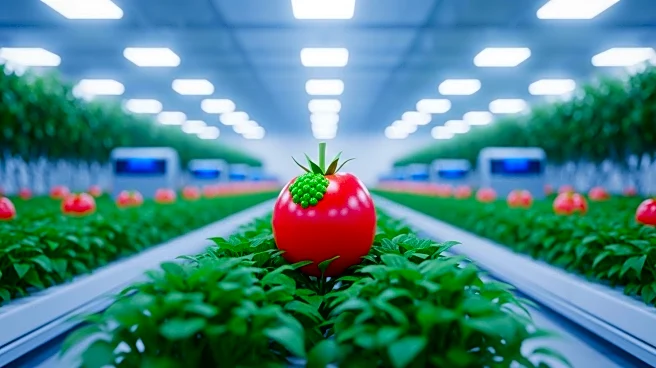What's Happening?
In a recent episode of BusinessLine’s Agrispective, Dr. RS Paroda, former Director General of ICAR, discussed the transformative potential of CRISPR-Cas gene editing in agriculture. This technology allows precise modifications to crop DNA, enhancing traits such as drought tolerance, pest resistance, and nutrient content without introducing foreign genes. Gene editing accelerates crop improvement, addressing challenges like climate change and soil health. India’s regulatory approach supports innovation while ensuring safety, emphasizing public awareness and science-backed communication to address concerns about gene-edited crops.
Why It's Important?
CRISPR technology represents a significant advancement in agricultural biotechnology, offering solutions to pressing challenges such as food security and climate resilience. By enabling precise genetic modifications, CRISPR can improve crop yields and nutritional quality, supporting sustainable agriculture. This technology has the potential to revolutionize farming practices, making them more efficient and environmentally friendly. As global food demand increases, CRISPR could play a crucial role in meeting these needs while minimizing environmental impact. The technology also opens new avenues for research and development in agriculture, fostering innovation and economic growth.
Beyond the Headlines
The adoption of CRISPR technology in agriculture raises ethical and regulatory considerations. Ensuring safety and public acceptance of gene-edited crops is essential for widespread adoption. Transparent communication and education about the benefits and risks of gene editing are crucial to gaining public trust. Additionally, the technology could lead to shifts in agricultural practices, impacting traditional farming methods and potentially altering market dynamics. Long-term, CRISPR could contribute to global efforts to combat climate change by developing crops that are more resilient to environmental stresses.








